Rise Above
Your Obstacles…
…Become an
HVAC Technician.
Start Your Journey Today!
HVAC Training
HVAC Technicians Help Keep Life Comfortable – Everywhere
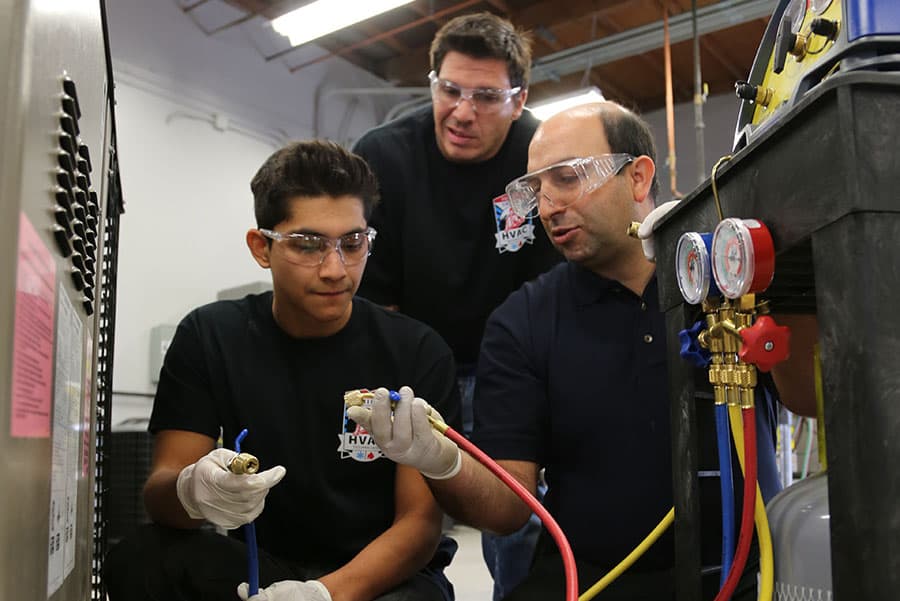
What Is an HVAC Technician?
Heating, ventilation, air conditioning, and refrigeration mechanics — most often referred to as HVAC technicians — are responsible for installing, maintaining, and repairing the HVAC/R systems that control the temperature and air quality in our businesses and homes. As our climate continues to shift and change, HVAC technicians will be key to helping us maintain our comfort and quality of living. Some technicians even specialize in certain areas of the industry, like solar panel systems, commercial refrigeration, radiant heating systems, and more.
What Does an HVAC Tech Do?
As an HVAC technician, your daily tasks will include things like:
- Installing, cleaning, and maintaining residential and commercial HVAC/R systems
- Installing electrical components and wiring within heating and cooling systems
- Inspecting and testing HVAC/R components and full systems either as an individual or as part of a team
- Isolating worn or defective parts and repairing or replacing them
- Recommending maintenance to improve system performance or increase the lifespan of system components
- Keep detailed records of the work you perform
- Interacting with clients and customers and discussing any issues or system malfunctioning
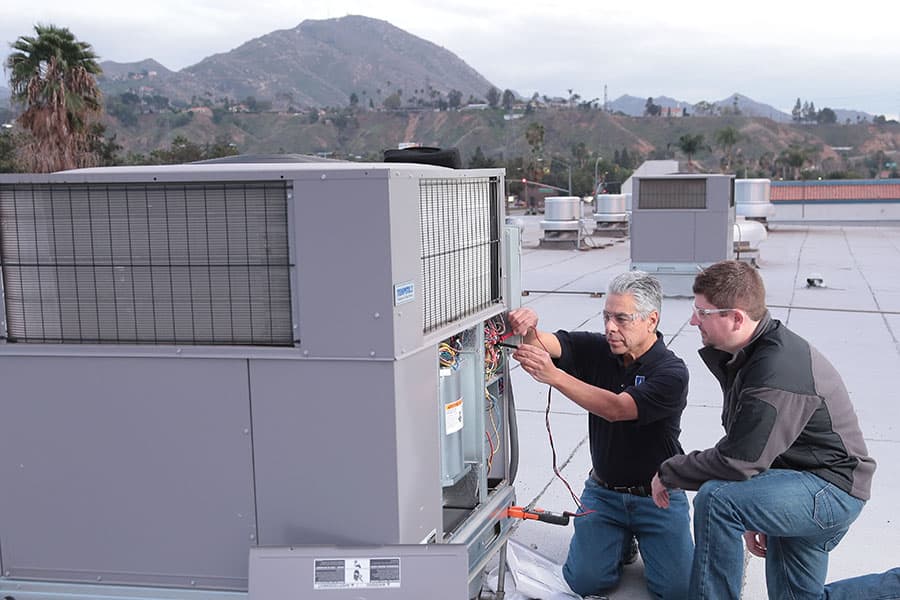

How Do I Become an HVAC Technician?


If you’re interested in working as an HVAC technician, a great first step is to get formal training through an accredited program like the HVAC program offered at Summit College. While California does not require you to take these programs in order to get started as a technician, your education credits can significantly cut down on the amount of field experience you’ll need in order to get your HVAC contractor license. A program like ours will cover both the theoretical and technical skills you will need on the job, utilizing hands-on training guided by real, experienced industry professionals.
On top of that, HVAC technicians need to be:
- Detail-oriented — Technicians engage in a lot of troubleshooting in order to solve problems and have to keep careful records of the work they’re performing
- Customer-oriented — Because you will often be working in customers’ homes and workplaces, you’ll need know how to communicate calmly and effectively
- Physically active — HVAC jobs often include a lot of walking and standing, as well as having to lift, support, and manipulate tools and equipment
“As instructors still working in the field, with over 12 years of combined experience between Leo and me, we are confident we can prepare you for a life-changing career in the growing HVAC/R industry.”
Juan Carlos Garcia, HVAC Instructor
How Long Does It Take to Become an HVAC Technician?
Summit College’s HVAC program can be completed in just 9 months. You’ll be prepped to sit for your EPA 608 Universal Certification during the program, and upon graduation, you’ll be eligible to sit for your initial North American Technician Excellence certification.
Why Should I Train at Summit College?
Becoming an HVAC technician means you could have great long-term job prospects and a career you can feel good about that has you interacting with all kinds of people from all walks of life. And Summit College can help you get the training and skills you need. We’ve been doing it since 1991 — it’s practically in our DNA. We believe we’re in this together with every student; you’ll get all the support and encouragement you need every step of the way, even after graduation.
- Fast track your career: At Summit, we understand that a lot of people want to start working in their chosen field sooner than later. That’s why we’ve designed a consolidated and effective curriculum. You can complete the HVAC program in as few as 9 months, and you’ll also be eligible for the EPA 608 Universal Certificationbefore you graduate and the core NATE (North American Technician Excellence) certification after you graduate.
- Professional faculty focused on your success: Your instructors have all done the job you’re training for and use their experience to prepare you for real-world situations. They’ll help you better understand the mechanical systems and components you’ll be working with, giving you confidence to succeed.
- Comprehensive curriculum: Your curriculum goes beyond the skills and basics, specially structured to prepare you for the necessary EPA certifications you’ll need to work in today’s field.
- Support throughout your program: Benefit from free tutoring, a Learning Academy with a career lab and career services that include resume assistance, mock interviews and workshops.
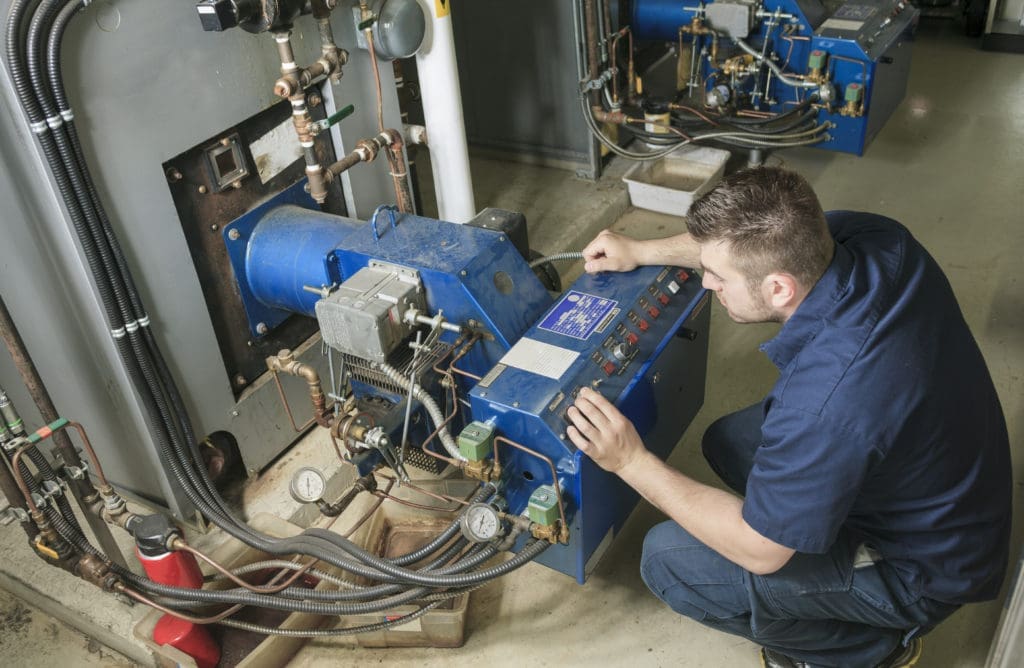

Crash a Class
Want to learn more about the trade and technical programs first-hand instead of just browsing our website?
HVAC Resources
Still not sure about HVAC training? Here are some articles that may help guide your decision.
Is Career Training Right for You?
Take the Summit College Career Training Readiness Quiz
The fun, online quiz takes 3 minutes to complete, and you’ll get a personalized report. Identify your strengths and social style plus the training and positions you’re best suited for.
What Will I Learn in an HVAC Program?
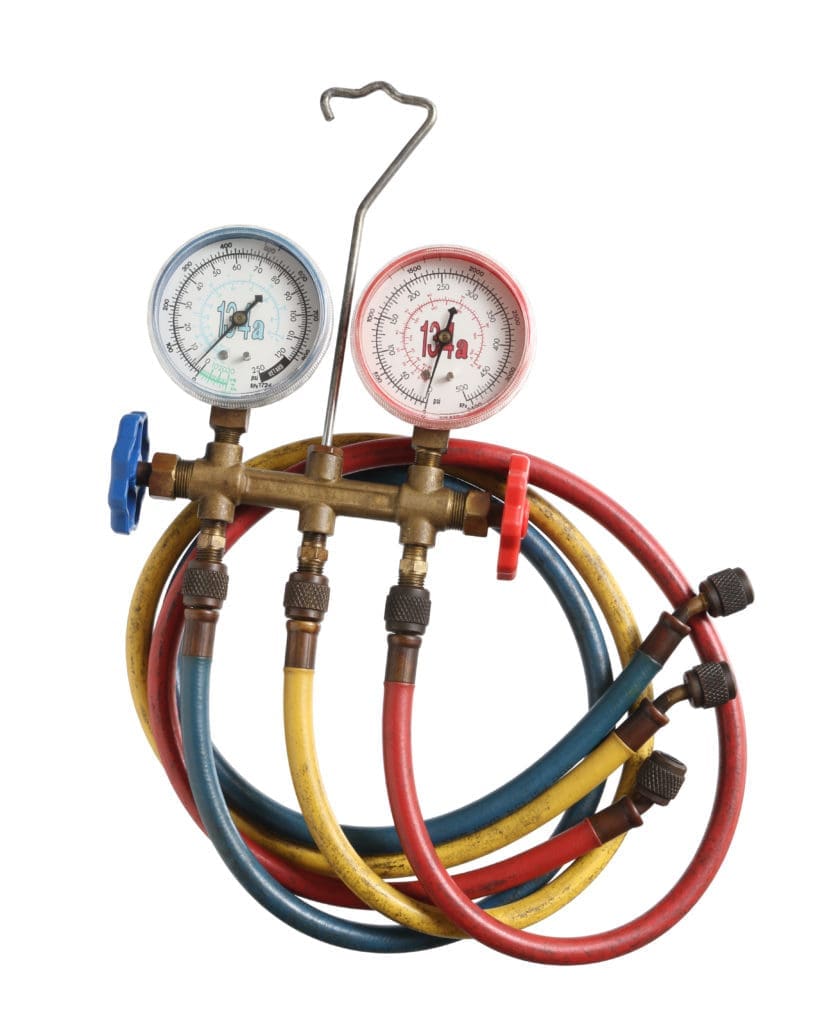

The HVAC program is focused on the learning objectives that have been identified by HVAC industry groups, like Air Conditioning, Heating and Refrigeration Institute AHRI and NATE. It’s structured to teach you the operations, maintenance, and repair of residential and commercial heating and air conditioning systems, with exposure to equipment like:
- 3-ton residential and commercial AC units
- 3-ton heat pumps and furnaces
- 3-ton and 5-ton condensers
- Ice makers
- Refrigerators and freezers
Our curriculum emphasizes vital, on-the-job skills, like:
- The underlying principles of heat, energy, temperatures and pressures, and the common tools, materials, and supplies used in working with HVAC/R systems
- Calculating and measuring pressures, troubleshooting, and simulated service calls on refrigeration systems
- Basic electrical theory, including Ohms law and circuit characteristics, and basic electrical safety, including “lock out” and “tag out” procedures
- How to fit HVAC/R pipes and tubing utilizing welding, soldering, and brazing techniques while monitoring and maintaining line pressure and joints seals
- HVAC equipment and systems used in commercial and industrial buildings, including adjusting belt drives, performing routine maintenance on cooling towers, water circulating pumps, and system blowers
- The use of green concepts, comfort cooling combination systems, and the latest information on green mechanical technology
- How to determine proper sizing of HVAC equipment and ducts to meet the requirements for a high-quality comfortable client.
What HVAC Classes Will I Take?
Summit’s HVAC program consists of nine different courses, or modules, that combine both classroom and hands-on lab work. You’ll take:


HVAC brazing
and cutting
Soldering
and welding
Refrigerants
and refrigeration
Principles of heat,
energy and pressure
Residential and commercial HVAC systems
Green job
training
What Happens After I Complete My HVAC Training?
Once you’ve successfully completed your HVAC training and your EPA 608 Universal Certification, a lot of our graduates choose to sit for NATE certification exams. While California doesn’t require this in order to start working in the HVAC field, earning these credentials can help you stand out in the job market. NATE has a number of different exam options and pathways toward certification that you can read more about on their website.
Whether you choose to pursue NATE certification or not, you’ll be ready to pursue entry-level HVAC technician jobs. Summit has a dedicated Career Services department that can help you with preparing your resume, practicing for interviews, and finding potential job openings. You can also register with CalJOBS if you’re interested in posting your resume online for interested employers.
What’s the Career Outlook for HVAC Technicians?
The demand for trained HVAC technicians is on the rise and expected to continue to grow. According to California Employment Trends*, jobs for HVAC technicians in the state are expected to grow by 14% — almost three times the national average — through 2030.
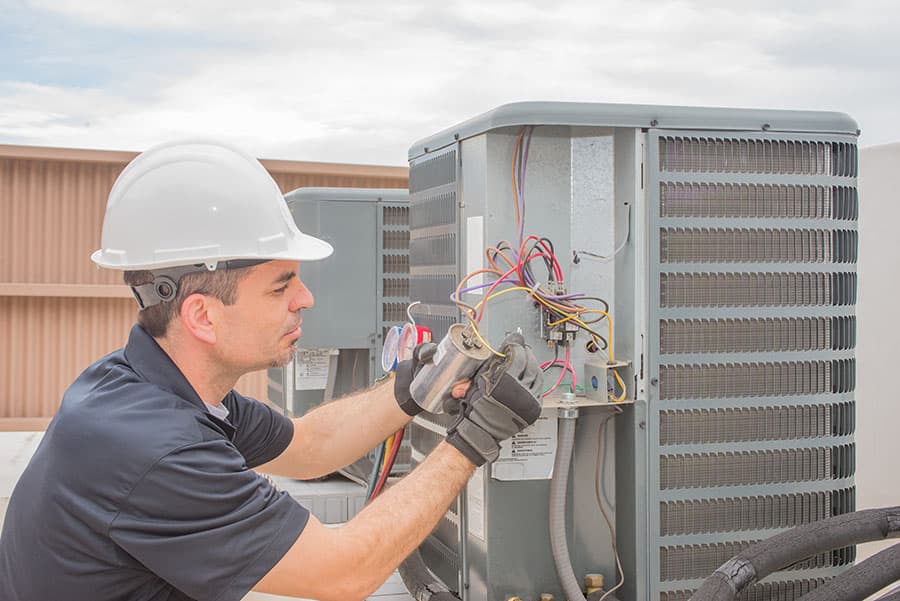

Where Do HVAC Technicians Work?
Since you’ll find HVAC systems pretty much anywhere people live and work, there’s no shortage of demand for qualified technicians. When you graduate, you can look for opportunities with:
- Building equipment contracting firms
- Nonresidential building construction
- Electric power companies
- Utility system construction sites
- Homes, businesses, and factories
Become an HVAC Technician
at These Summit College Campuses
San Bernardino
804 East Brier Drive
San Bernardino, CA 92408
El Cajon
411 N Marshall Ave
El Cajon, CA 92020
Santa Ana
1639 E. Edinger Ave
Santa Ana, CA 92705